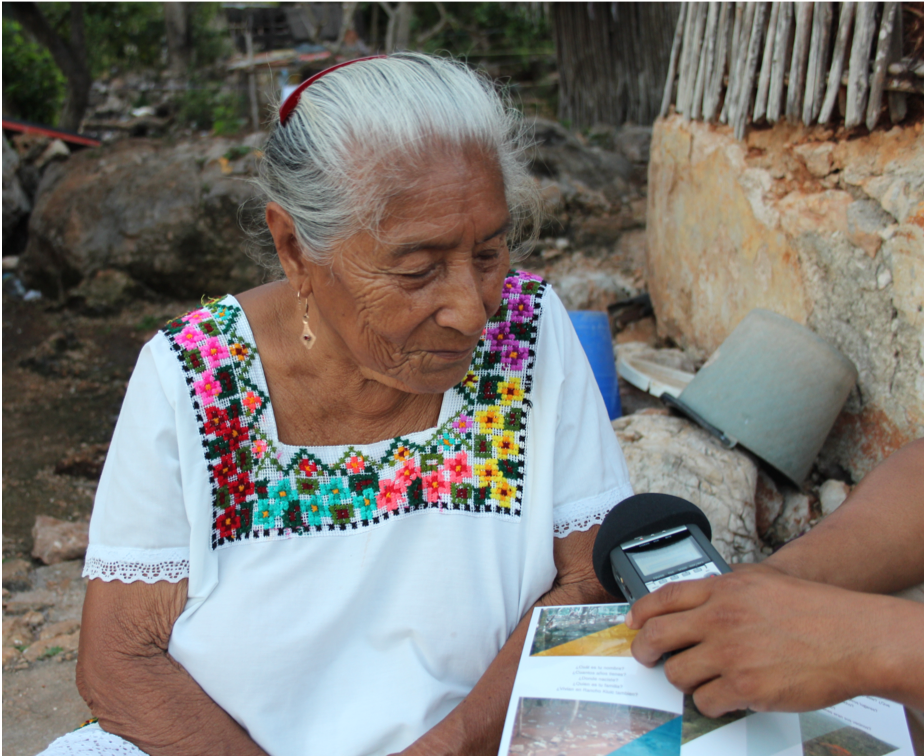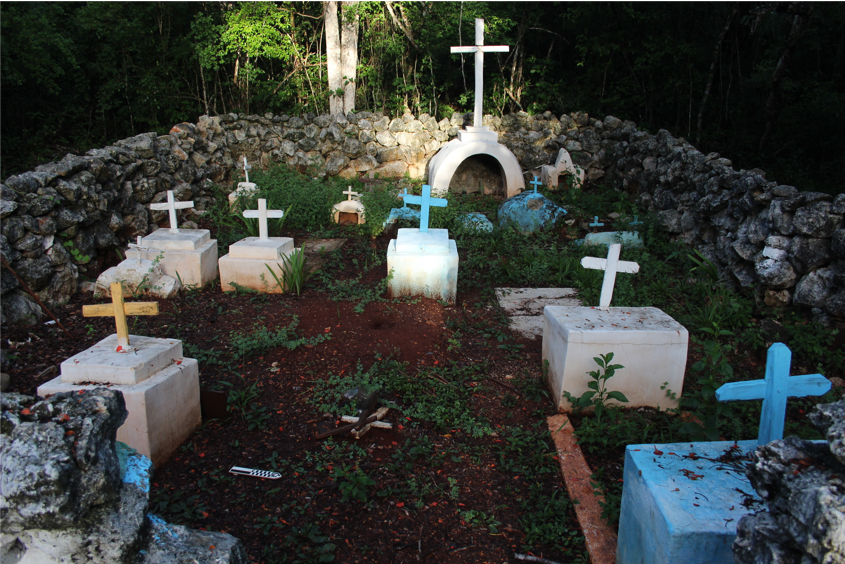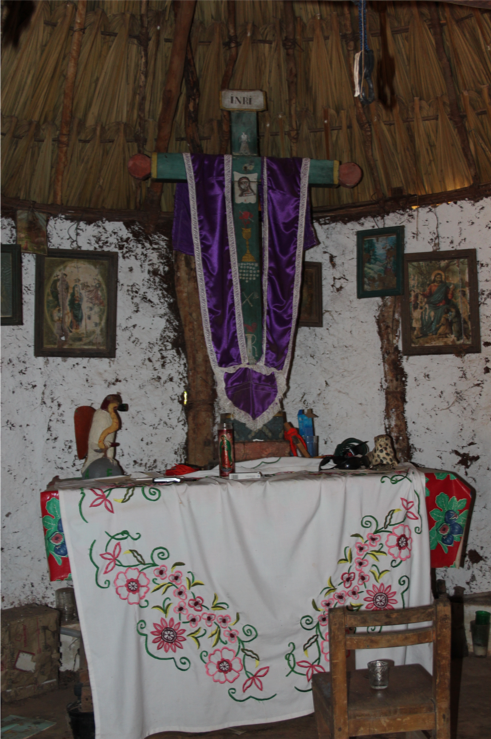Doctoral Dissertation Research
The University of North Carolina at Chapel Hill
PROYECTO RANCHO KIUIC Puuc Hills, Yucatán, México.
BACKGROUND My dissertation, Caciques and Community: The Anthropology of Social Memory at Rancho Kiuic, Yucatán, México focused on a privately-owned agropastoral estate occupied from the late Colonial period through the 1950's. Drawing on archival, oral historical, and excavation data, this research explores the socioeconomic relationships between Maya-speaking landowners and indebted laborers, and the impacts of historical finance and power relationships on community consumption patterns. Using ethnographic interviews and community collaboration, I also explored the ways in which historical inequities and relationships shape modern interactions with the abandoned Rancho.
Although I’ve traded in my trowel, my approach continues to be influenced by collaborative study design and the use of mixed methods, and I remain intrigued by behavioral patterns around consumerism and identity.
Mixed-Methods Approach:
Interviews and Collaboration: Members of the Rancho's descendant community, still living in nearby towns and villages, maintain ties to Kiuic through stewardship of the community cemetery and sharing memories of life on the Rancho. The community participated in a series of oral history interviews which informed excavation locations, mapping strategies, and artifact pattern interpretations.
Archival Research: Research was conducted in several state archives in Mérida, including Archivo General del Estado de Yucatán (AGEY), Archivo Histórico de la Arquidíosis de Yucatán (AHAY), and Biblioteca Yucatanense (BY) to explore the site's demographics, chain of ownership, and historical context within the region.
Excavation: Excavations centered on six household and two chapel contexts, identified through extensive survey mapping and oral history. Artifacts ranging from locally-produced and imported ceramic and glass vessels, agricultural tools, and items of personal adornment were analyzed to explore community-wide and household consumption patterns.
Funding, Support and Recognition:
Rancho Kiuic is located with the Kaxil Kiuic: Millsaps Biocultural Reserve and this research was conducted as a sub-project of the Bolonchén Regional Archaeological Project (BRAP). Funding for this project came from an NSF Doctoral Dissertation Improvement Grant and a Fulbright-Hays Doctoral Dissertation Research Abroad Fellowship, as well as support from UNC's Institute for the Study of the Americas, The Graduate School, and the Department of Anthropology. Special thanks to my advisor, Dr. Patricia A. McAnany, BRAP Directors, and my dissertation committee members. In Spring 2019, my work was recognized with the Distinguished Dissertation Award for the Department of Anthropology at UNC.


